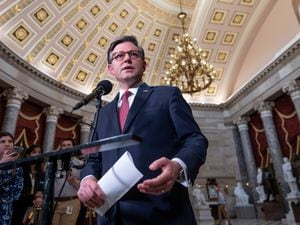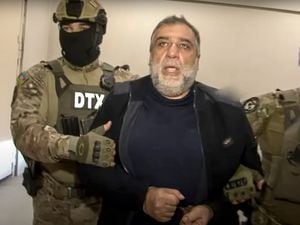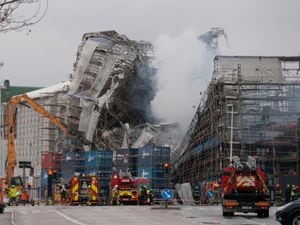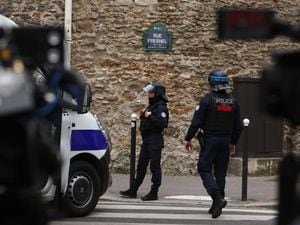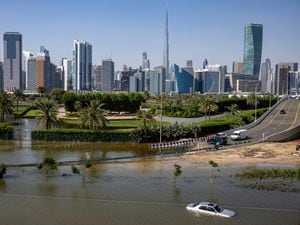Former Malian president Ibrahim Boubacar Keita dies aged 76
Mr Keita was known to Malians by his initials IBK.
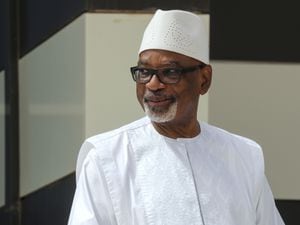
Former Malian president Ibrahim Boubacar Keita, who took office in an election held after a destabilising coup only to be ousted in another military takeover nearly seven years later, has died aged 76.
Mr Keita, known to Malians by his initials IBK, had been in declining health since his forced resignation in August 2020, and had sought medical treatment in Dubai shortly after his release from junta custody.
His death early on Sunday – announced in an alert by the state broadcaster ORTM – comes as the sprawling African nation faces a deepening political crisis. The coup leader who ousted Mr Keita has no immediate plans for a return to democracy as initially promised.
Mr Keita won the 2013 presidential election held to restore democracy after a 2012 coup. But only seven years later he himself was ousted by another military takeover following months of public demonstrations against his presidency.

In August 2020, soldiers encircled his home and fired shots in the air. Hours later, Mr Keita appeared on national television just before midnight to announce he was resigning immediately so that no blood would be shed.
West African regional leaders imposed tough economic sanctions earlier this month after Cololnel Assimi Goita, who heads the transitional government, indicated that the next presidential election would not be held until 2026, after initially agreeing to elections by the end of next month.
A protest movement against Mr Keita’s presidency saw tens of thousands demonstrate in the streets in the months leading up to his overthrow.
As discontent with his leadership mounted, Mr Keita had tried to make concessions to his critics, saying he was even open to redoing the vote. But these overtures were swiftly rejected by opposition leaders, who said they would not stop short of Mr Keita’s departure.
Support for Mr Keita also tumbled amid criticism of his government’s handling of the Islamic insurgency, which significantly expanded into central Mali during his tenure.
A wave of particularly deadly attacks in the north in 2019 prompted the government to close its most vulnerable outposts as part of a reorganisation aimed at stemming the losses.

Mr Keita also faced criticism for his handling of the political crisis in the north. He signed a peace agreement with former rebels, but it was never fully implemented, prolonging the instability.
Back in 2013, Mr Keita had emerged from a field of more than two dozen candidates to win Mali’s first democratic election after a 2012 coup – a landslide victory with more than 77% of the vote.
He also enjoyed broad support from former colonial power France and other Western allies. In 2018, Mr Keita was re-elected to a second term after receiving 67% of the vote.
Born in 1945, Mr Keita hailed from the town of Koutiala in what is now southern Mali. He studied in Bamako, Dakar, Senegal, and Paris, earning a master’s degree in history with postgraduate studies in politics and international relations before entering politics.
His early posts included ambassador to neighbouring Ivory Coast and diplomatic adviser to president Alpha Oumar Konare, who took office in 1992. Mr Keita then served as prime minister from 1994 to 2000, and later as president of the National Assembly from 2002 to 2007.
He is survived by his wife, Aminata Maiga Keita, and their four children.

